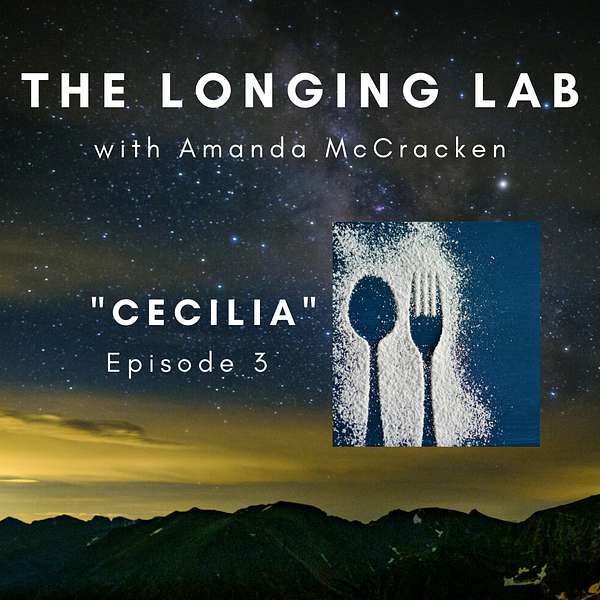
The Longing Lab
Do you ever find yourself so fixated on longing that you can’t enjoy the present? Longing for a lover, an exotic destination, a lost loved one, or a past time in your life? The Longing Lab takes a deeper look at the science of longing and the culture that drives us to long for what we don’t have. You can expect insightful conversations with individuals uniquely qualified to talk about longing. Host, Amanda McCracken, has written or spoken about her own addiction to longing in national publications like the New York Times, Washington Post, & the BBC. The goal of the Longing Lab is to inspire individuals to make positive changes in their lives. Look for her book, When Longing Becomes Your Lover (Hachette), in fall of 2025!
The Longing Lab
Blind woman on self-denial & the longing she faces & fears with anorexia
Cecilia (name changed for privacy) is a writer, gardener, and competitive runner. She is currently exploring recovery from her eating disorder and how that relates to her desire for food and other desires she has long considered forbidden weaknesses. At the age of 14, she became blind as a result of a car accident. She says she had to learn to be tough and live without many things most people take for granted. But the theme of denial started earlier in her life when her eating disorder began at the age of 8. Losing her sight reinforced her sense of living with loss. It wasn’t until she was 30 that she sought out treatment. In this episode, I speak with Cecilia before and after her three-month visit to an inpatient treatment center—her third one. The post-treatment part of the interview starts at 28:00.
In this episode, we talked about…
- Satisfaction vs Longing
- How religion encourages longing and whether or not it’s healthy
- Longing to see color
- The difference between mourning a loss and longing for something you never had
- Whether blindness is an obstacle to overcome or identity
- The role fear and control play in eating disorders
- The difference between eating disorders and other addictive disorders
- Letting go of the proverbially log to grab the life raft
- How resisting eating and smelling food helps her protect herself from some memories associated with food and how binging on food allows her to soothe other memories
- What the Minnesota Starvation Experiment says about longing (mind vs body)
- How we have to retrain our brain when negative patterns become ingrained
Quotes
“Longing is desperately wanting something that is missing, not necessarily something you can’t have. I don’t long for a different reality because I can’t imagine it.”
“My blindness is core to who I am. I am not expected to overcome being a woman or the fact I live in the United States. It bothers me that people think I should overcome my blindness.”
“I long to see colors again, but I know it’s never going to happen again. I have a concept of them in my head, but I worry that my own concept is limited. I want to have the experience that goes beyond my imagination. My imagination is not limited by reality.”
“Food is something I desperately crave, like security, comfort, & belonging. All of these are things food, taste, and smell can provide us. I do long for those things, but I can’t think about it because it’s too terrifying. If I were to want all those things, I feel like I wouldn’t be able to function. So I need to tell myself that I don’t deserve or need those things.”
“I replace food with power and control I get when I can restrict myself from food.”
“You have to let go of the log you’re clinging to in order to grab on to the life raft.”
“Ultimately nobody can force you to eat, and you can keep fighting against this thing you are longing for. At some point, you have to choose to say, ‘Here are all those things I’m terrified about and I’m still going to take this chance that I have to eat.’”
“At some point, the brain of someone with an eating disorder just doesn’t work properly and there’s no reasoning your way through it. It’s having to go through the process of learning to eat again. It makes me cringe that I’m having to relearn to eat.”
“With my eating disorder I’m in this battle between my mind and my body. My body wants and needs food. I either want to deny it or I want to punish it with food by giving it way too much. It’s rare that someone only restricts when they have an eating disorder. It’s usually a combination of both binging and restricting.”
Links/Resources:
To learn more about the Minnesota Starvation Experiment check out: